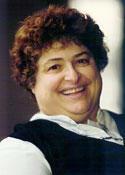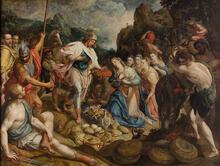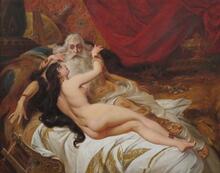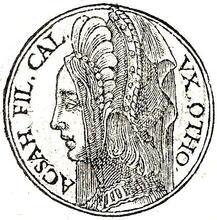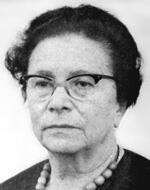Huldah: Bible
Huldah appears in the books of Kings and Chronicles. Her story involves a scroll discovered in the temple during the reign of King Josiah. Her identity as a female prophet is not especially remarkable for the time period, but it is significant for how her judgements are centered on a written document.
Article
Huldah is depicted as a temple prophet who validates a scroll, called “the book of the law [or covenant],” purportedly found in the temple during repairs ordered by King Josiah, the last of Judah’s “good” kings (reigned 640–609 BCE). The narrative of this book is tied to the nationalistic political and economic policies known as Josiah’s cultic reform. Whether Josiah’s new policies began before or after the discovery of the book is a point of contention between the versions of events in Kings and in Chronicles. The exact content of the book is not specified: Josiah’s destruction of non-Yahwistic cultic sites is in line with positions expressed in the Book of Deuteronomy, as is Huldah’s reference to “all the curses that are written in the book” (2 Chr 34:24).
In Chronicles, the allusion to “the book of the law of the Lord given through Moses” (2 Chr 34:14) may suggest that later author’s (historically unlikely) assumption that it was the whole Pentateuch. Some historians question whether an ancient document was really found and suggest it had been produced to serve Josiah’s purposes. Others tie it to documents that may have survived from an earlier reform—that of Josiah’s great-grandfather Hizkiyahu (727–698 BCE), whose efforts were negated by the subsequent misdeeds of his son Menashe (698–642 BCE).
Modern readers, unaccustomed to thinking of ancient women in positions of authority, may find Huldah’s story remarkable. The biblical evidence, however, makes clear that prophecy was a role open to women on an equal basis with men (other examples include Miriam, Deborah, and, in the New Testament, Anna), and the narrators of Kings and Chronicles take no notice of Huldah’s gender. Though she is identified by her husband’s ancestry, such a formal convention does not detract from her own royally recognized authority to speak in the name of YHWH. Mesopotamian parallels suggest this story fits a type of account in which a king ostensibly receives a divine directive for cult reform and then validates it through temple personnel. Such parallels confirm Huldah’s role as typical.
Although it is certainly possible to envision a woman like Huldah as a temple prophet in the time of Josiah, some scholars suggest that this narrative segment is the literary creation of a postexilic writer seeking to explain the exile, rather than a report (or justification) of events during the monarchy. Indeed, Huldah’s rather generic prophetic oracle deals with the inevitability of divine punishment of Judah, not the hope promised by Josiah’s cultic reform. If so, the idea of a female prophet was presumably taken for granted in the later period as well (compare Noadiah in Neh 6:14).
Whatever the case, Huldah’s story is notable in the biblical tradition in that her prophetic words of judgment are centered on a written document: she authorizes what will become the core of Scripture for Judaism and Christianity. Her validation of a text thus stands as the first recognizable act in the long process of canon formation. Huldah authenticates a document as being God’s word, thereby affording it the sanctity required for establishing a text as authoritative, or canonical.
Camp, Claudia V. “Female Voice, Written Word: Women and Authority in Hebrew Scripture.” In Embodied Love: Sensuality and Relationship as Feminist Values, edited by Paula M. Cooey, Sharon A. Farmer, and Mary Ellen Ross, 97–113. San Francisco: 1987.
Hamori, Esther J. "The Prophet and the Necromancer: Women's Divination for Kings." Journal of Biblical Literature (2013): 827-843.
Meyers, Carol, General Editor. Women in Scripture. New York: 2000.
Swidler, Arlene. “In Search of Huldah.” Bible Today 98 (1978): 1780–1785.
Stökl, Jonathan. "Deborah, Huldah, and Innibana: Constructions of Female Prophecy in the Ancient Near East and the Hebrew Bible." Journal of Ancient Judaism 6, no. 3 (2015): 320-334.
Weems, Renita J. "Huldah, the Prophet: Reading a (Deuteronomistic) Woman's Identity." A God So Near (2003): 321-339.

